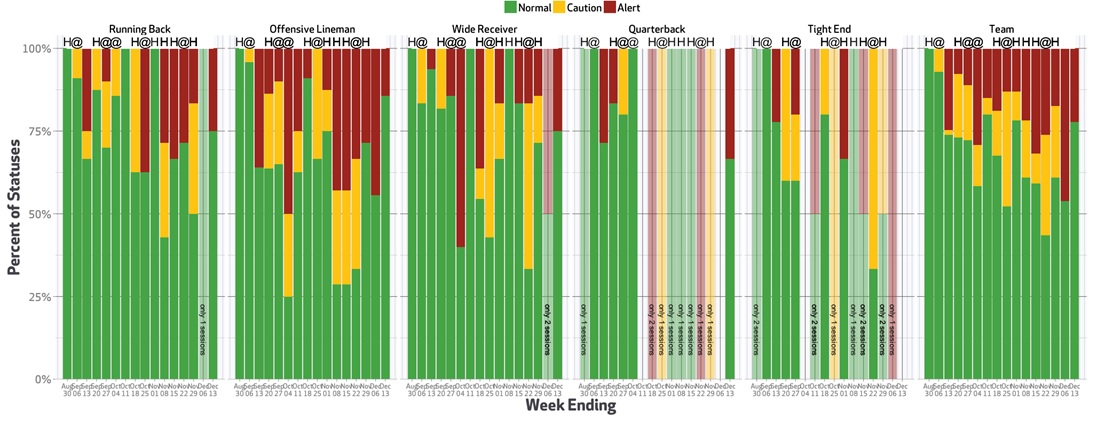This team engaged MuscleSound® prior to the start of the 2014 season to monitor its player’s overall Muscle Fuel levels, MuscleHealth and ensure safe return to play. The team, coaches, and trainers gained specific insight as to when precise modifications needed to be made. These modifications were necessary and apparent particularly during travel, top competition practices and games, and high altitude play. The following is the year in review case study prepared by the MuscleSound team.
Background: Insight was desired as to how well the team offense, defense, and position groups responded to the weekly practice workload for the regular season.
MuscleSound® Intervention: MuscleSound testing was utilized on each player twice per week to monitor Muscle Fuel levels.
Result: The entire team experienced a downward trend in their fuel scores during the practice week over the course of the season. In particular, defensive linemen and linebackers showed extreme caution and alert statuses throughout the season. In addition, the team saw declining spikes in accordance to travel games, indicating that travel had a clear significant negative impact on the teams’ susceptibility to injury, where the irregularities of sleep patterns and nutrition were most present. Furthermore, practice weeks leading up to games against top teams in the conference had a huge negative impact on fuel scores, thus a decrease in the ability for peak performance and an increase in the susceptibility to injury. Finally, the altitude had a clear negative impact on scores. This variance was seen during the high altitude game, as every game except for that game was played within 100 feet of sea level. The chart below illustrates the range of fuel levels throughout the year from an offensive positional standpoint, as well as from an overall team view. Practice demands are to be monitored and altered according to the MuscleSound® test results next season to reverse these negative effects.

